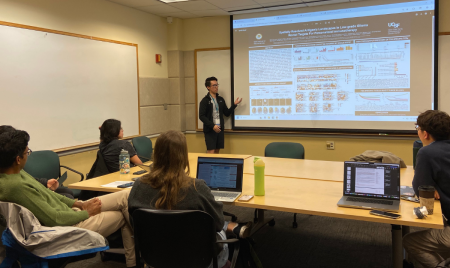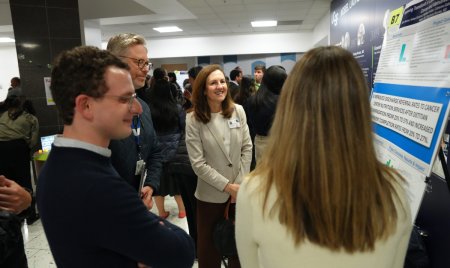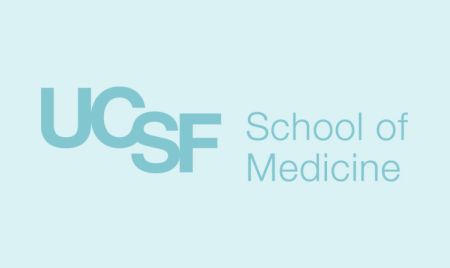An Interview with Karen Hauer, MD, PhD, UCSF School of Medicine Vice Dean for Education
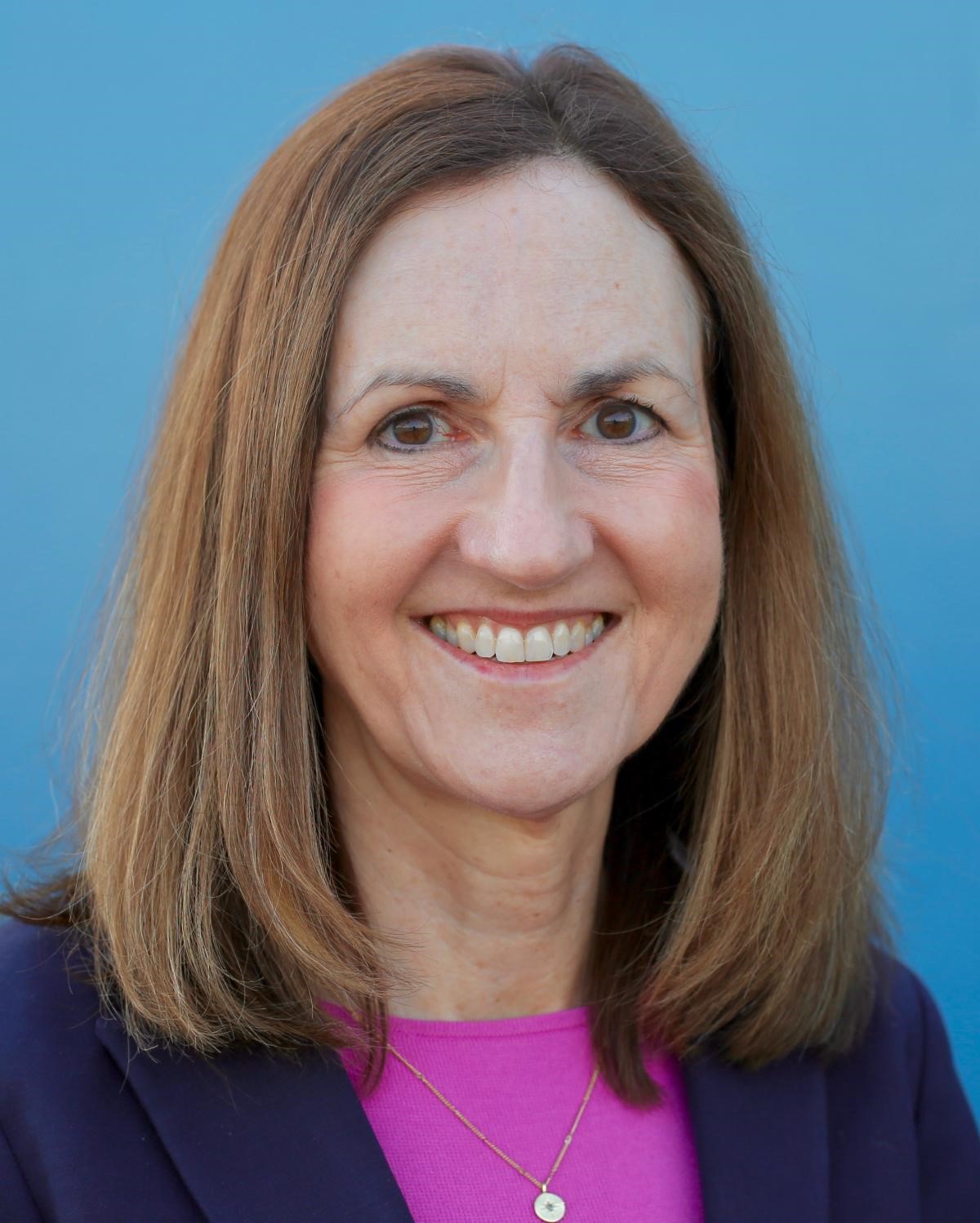 Effective December 1, 2023, Karen Hauer, MD, PhD was appointed as the UCSF School of Medicine’s Vice Dean for Education. She is the principal leader for promoting the educational mission of the UCSF School of Medicine. In this role, she oversees a talented team of associate deans and faculty directors who collectively oversee the entire continuum of medical education at UCSF from post baccalaureate/outreach to admissions, undergraduate, graduate and continuing medical education. Dr. Hauer also oversees Faculty Development, the Haile T. Debas Academy of Medical Educators and Educational research initiatives. She is responsible for achieving UCSF’s vision of being a global leader in medical education through innovation and scholarship, and serves as a leader and champion of the School’s ongoing efforts in diversity, equity, belonging, and anti-oppression.
Effective December 1, 2023, Karen Hauer, MD, PhD was appointed as the UCSF School of Medicine’s Vice Dean for Education. She is the principal leader for promoting the educational mission of the UCSF School of Medicine. In this role, she oversees a talented team of associate deans and faculty directors who collectively oversee the entire continuum of medical education at UCSF from post baccalaureate/outreach to admissions, undergraduate, graduate and continuing medical education. Dr. Hauer also oversees Faculty Development, the Haile T. Debas Academy of Medical Educators and Educational research initiatives. She is responsible for achieving UCSF’s vision of being a global leader in medical education through innovation and scholarship, and serves as a leader and champion of the School’s ongoing efforts in diversity, equity, belonging, and anti-oppression.
As Karen embarks on this new role, we asked her to reflect on her background, what led her to pursue medical education, what she’s looking forward to accomplishing in her new role, and what brings her joy in and outside of her career.
Tell us about your background.
I grew up in the Bay Area, in San Rafael. At Stanford, I majored in human biology, which is an interdisciplinary major that brought together the sciences and the social sciences and helped me learn about quantitative and qualitative perspectives to understanding and solving problems related to human health. I continue to rely on that multimodal, multidisciplinary approach in my career.
I attended medical school and did residency in internal medicine at UCSF. I was chief resident in Medicine at San Francisco General Hospital (now known as ZSFG) before starting on faculty in the (then) brand-new field of hospital medicine and general internal medicine. I was the first woman faculty hospitalist at UCSF.
I was interested in teaching and was fortunate to become the internal medicine clerkship director. Early in my time on faculty and especially in that clerkship director position, I learned a lot about curriculum design and assessment, with a particular focus on student assessment. There were already intriguing discussions locally and nationally about grading in clerkships and the introduction of competency-based medical education.
I was prompted to deepen my understanding about assessment and became interested in medical education scholarship early in my career. I became a researcher in medical education through exploration of problems our learners were facing around finding mentors or understanding clerkship objectives. By studying these issues with colleagues, I was able to find paths forward to improve these challenges.
On the personal side, I met my husband at UCSF when we were both medical students. My husband is an anesthesiologist with Kaiser. We have three kids, ages 19, 23, and 26. I’m grateful that all of us are still in the Bay Area.
What led you to medical education?
I have always loved teaching. I think it started out with volunteer teaching and babysitting growing up, and then taking on various teaching and student advising roles in college at Stanford. I really enjoyed the teaching role in residency and chief residency.
My love of teaching and mentoring drew me to medical education as a career path. Like many people, I didn't know that medical education was a potential career path. I was thrilled to discover it and take every opportunity to promote it and bring other people into this super exciting field.
How do you define your leadership style?
My leadership style is purpose-driven. As a primary care physician, I am attuned to the fact that the quality of our medical education is directly reflected in the quality of care that we will provide to patients and the communities we serve.
I really value and enjoy working with others. When I’m collaborating on projects, I always seek out broad input and aim to understand students’ and residents’ perspectives and experiences. I like meeting people where they're at and listening for the purpose of understanding their motivations and goals. I also value clear and transparent communications, and making sure that the entire team understands what we’re doing, why we’re doing it, and how we can ensure that others will engage in the work.
As a leader, I want to provide opportunities for people to grow, to learn, and to build their skills and experiences. This growth mindset, for individuals and for our programs, will help us be well positioned to adapt and improve.
My personal values resonate with the mission of UCSF and with high ethical standards and commitment to UCSF’s PRIDE Values. My goal is for our collective UCSF work in medical education to exemplify those values that the UCSF community stands for.
What are your top priorities as Vice Dean for Education?
I set out four key principles that I see as priorities: commitment to excellence in medical education; strength in diversity, equity, belonging, and anti-oppression; medical student and trainee wellbeing and success; and advancing innovation and research.
I am currently conducting listening sessions with trainees, faculty, and staff. In those sessions, I am hearing themes that reflect the principles I mentioned. I am also hearing about how people are experiencing this period coming out of the height of the COVID-19 pandemic, and redefining what it means to be a community at UCSF. People have mentioned both excitement and trepidation about the next innovations in medical education. Overall, most people I’ve heard from want to be part of something exciting and big, and to ensure that everyone belongs.
What are areas of innovation you are most excited about?
There are three areas of innovation I’m most excited about. The first is clinical education. There have been some innovations in our clinical education around longitudinal integrated clerkships and changes in the approach to assessment and grading. But there are other aspects of our clinical education that haven’t changed in a long time. For example, the block clerkship model of training is an area that could be enhanced to promote relationships, trust, and individualized learning.
The second area that I am excited about is transitions in education. These are transitions at various points, both smaller and larger, such as from one clerkship to the next, or from Foundations 2 to Career Launch, Career Launch to internship, or from to residency to practice. Transitions are pivotal times that affect learners’ well-being within the continuum of their learning. Managing these transitions well is important for our physician workforce so that learners and faculty are ready for their new roles. Attention to transitions is also important to us locally at UCSF because we hope that our excellent students will become our excellent residents and faculty.
Another area of high interest is artificial intelligence (AI) and data analytics. This year’s School of Medicine Leadership Retreat focused on AI. AI will have many important implications for education: in how we teach people what skills they will need, how we use data to improve education, and how we can be leaders in medical education scholarship around AI.
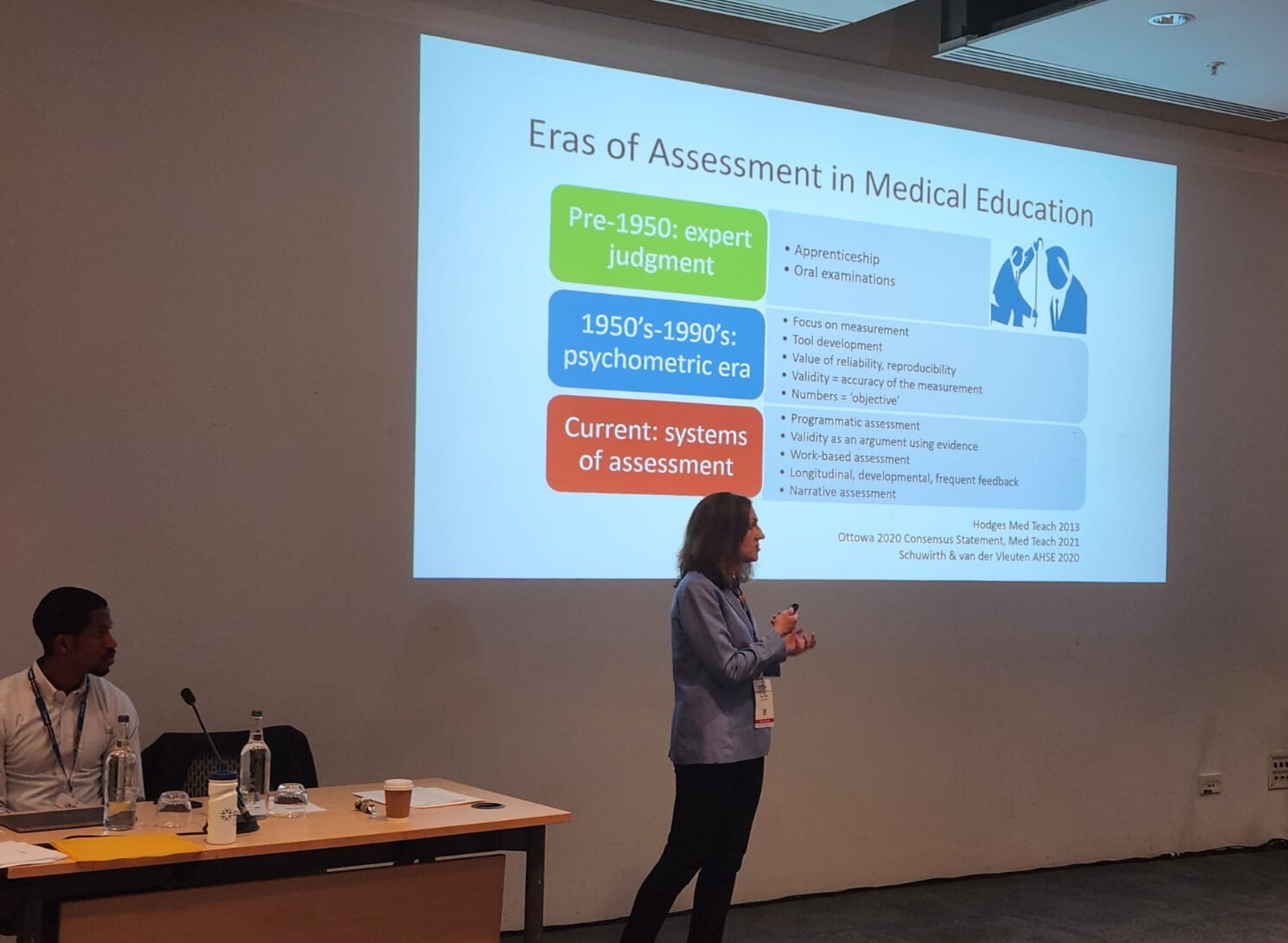
You have experienced UCSF medical education from various perspectives—as a medical student, resident, faculty member, clinician, Associate Dean for Competency Assessment and Professional Standards, director of the medical student coaching program, and now planning the future of medical education in your role as Vice Dean for Education. How have these various viewpoints influenced your values and goals?
Having all those viewpoints reminds me why we do this work. My experiences help me remember that by keeping our focus on the experience of the student or resident, we can empower them to become the best physicians they can be. Educating well-trained, curious, compassionate physicians is integral to serving our patients and communities.
These multiple perspectives also help me think about where we have opportunities for transformative change. Sometimes longstanding challenges can be perceived as intractable. But I have seen over and over that we can address entrenched problems through thoughtful innovation that will make things run more effectively, smoothly, equitably, and efficiently.
I’m optimistic about our ability to create positive transformation. Part of what makes UCSF faculty and staff unique is their willingness to create change and not defaulting to “that’s how it’s always been done”. We also engage learners as partners in transformative change. If something is not working, why not try to tackle it? Especially because we have the best minds to find solutions.
What brings you joy in your career?
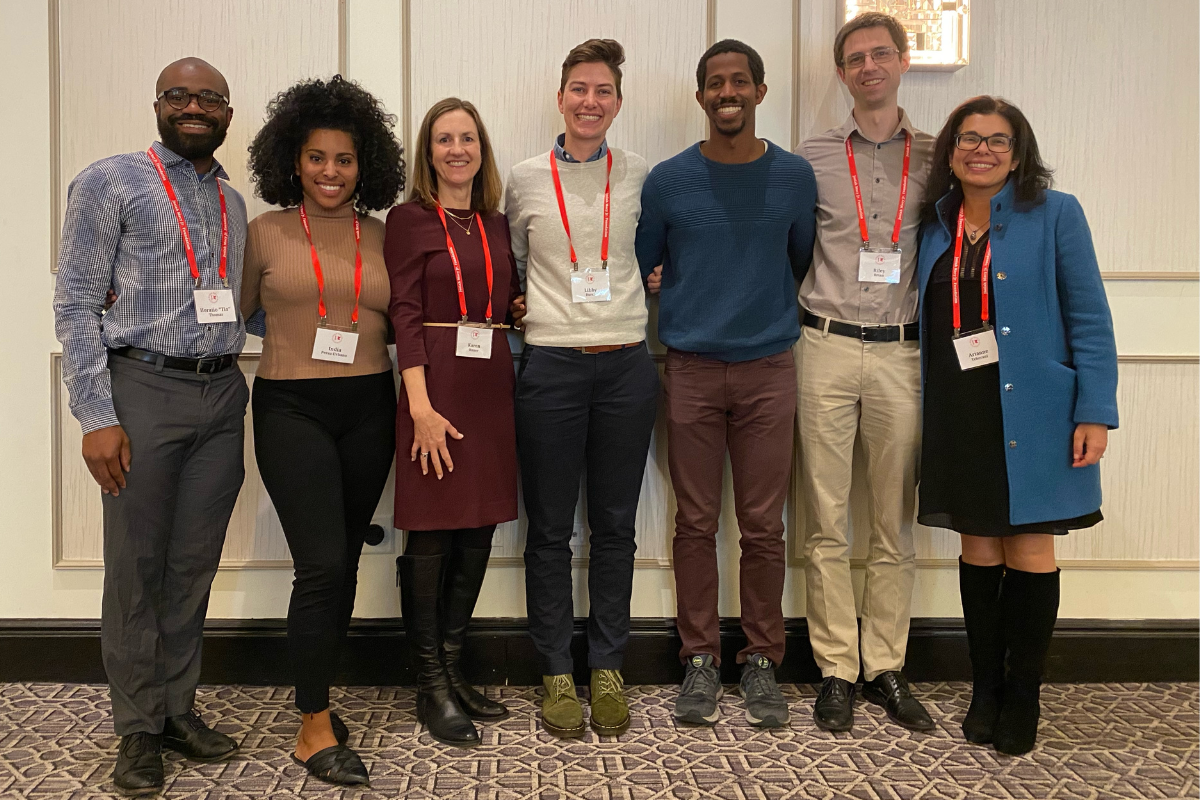
The people. I find huge reward in working with students and residents and then collaborating with them as faculty colleagues. It is fulfilling when I’m consulting with a former student or resident who is now a specialist who can help with the care of one of my patients. It is incredible to see them become physicians who have realized their career ambitions.
In my clinic, continuity with patients is tremendous. I’ve been the doctor for some of my patients since 1998. Having that longitudinal connection and trust is deeply meaningful for me.
I derive great joy from medical education scholarship. It is fun to help learners or faculty learn how to do scholarship and do it well. Many of them come in saying, I don’t know how to do this, and then they are publishing papers.
I also find satisfaction in how medical education research helps UCSF shift the field on a national scale. Educators at other institutions pay attention and reach out based on our publications to ask for consultations to help them solve problems they are facing. The power of scholarship to advance the field is very exciting.
You are known for your contributions to assessment and equity in medical education. What is your proudest career accomplishment?
I think of two accomplishments. The first is the change in 2019 to pass/fail grading and the redesign of the approach to assessment in the Foundations 2 core clerkships. I’m proud of the process that we used to engage our community including students in this work. I had the opportunity of collaborating with then Vice Dean Catherine Lucey, MD, clinical department chairs, residency directors, clerkships directors, and vice chairs for education, along with medical students and other educators to design our new assessment system. We used the UCSF presidential chair process to engage an outside expert and we collaborated with a broad group of internal students, faculty, and staff so there was excitement about both how and why we were making the change and expert input into our redesign. It was gratifying that the scholarship around that change was led by medical students and demonstrated the outcomes of the change.
The second accomplishment is establishing the coaching program for medical students in 2016. UCSF was one of the first medical schools to develop a coaching program and it has been transformative for our students and faculty. The program allows faculty coaches the opportunity and time to teach, mentor, and develop skills that makes them expert educators. It has been gratifying to see the community of practice that the coaches have created. The ripple effects of that coach community are visible as coaches develop new ways of approaching their work that they use in their other leadership and clinical roles. We have seen multiple coaches assume new education leadership opportunities because of the skillset and experience they gain as coaches.
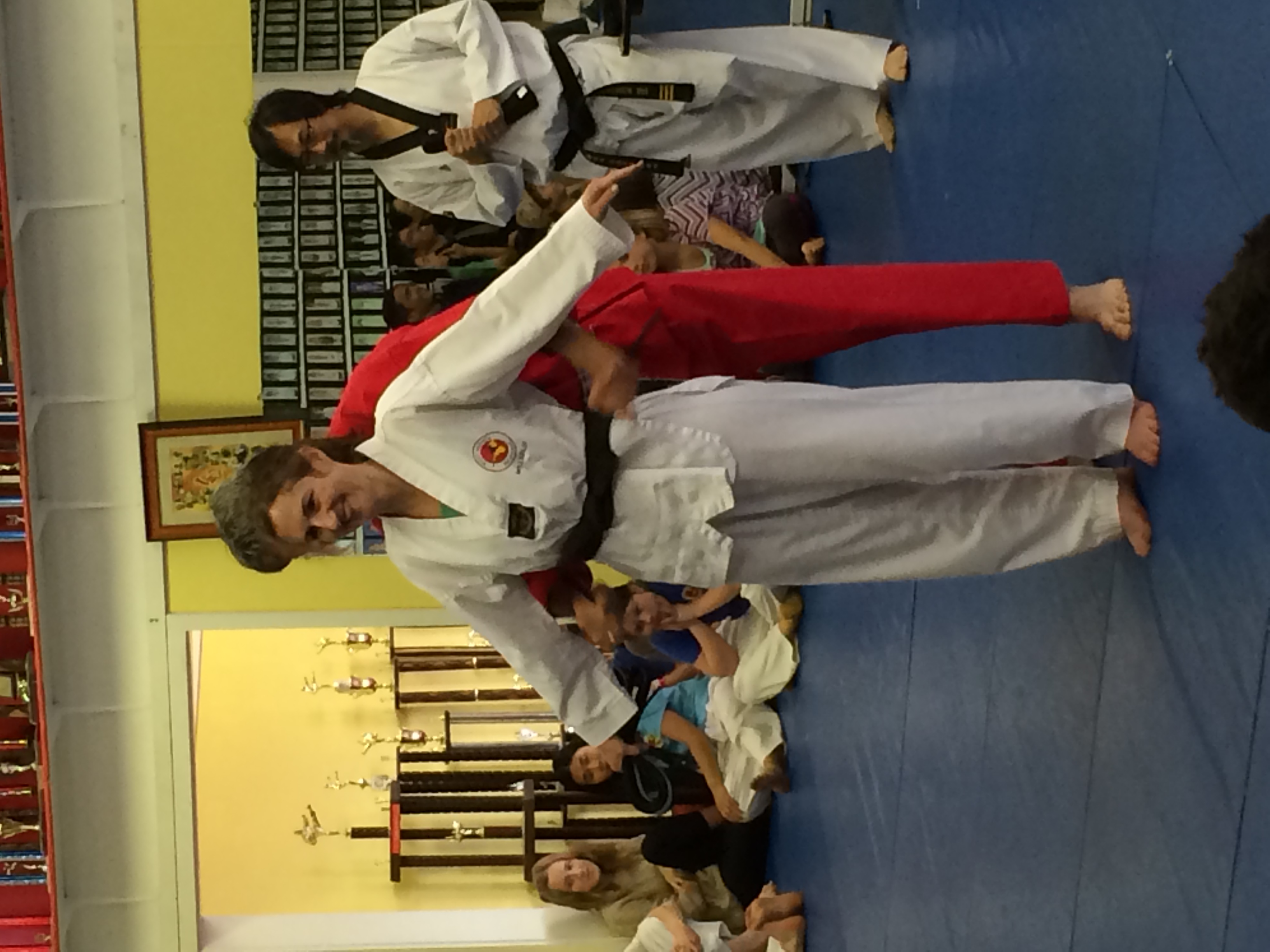
What is a passion or hobby outside of medicine?
Exercise is one of my hobbies. I got the advice that as an educator you should always be learning something new and be in the learner's seat. When I was completing my doctoral program in medical education, I took up Taekwondo with my kids. I earned a black belt in Taekwondo the year before I completed my PhD in medical education through the UCSF-University of Utrecht doctoral program.
It was interesting to see the parallels of going through the doctoral process and learning Taekwondo at the same time. I noticed that there were some aspects that were more naturally more comfortable for me, such as more controlled ‘forms’ in Taekwondo, which I see as more artful than sparring, which I had to work at.
Tell us about your participation in the doctoral program in medical education.
In the PhD program through UCSF and University of Utrecht in the Netherlands, I focused on the concept of trust in medical education assessment. I explored how assessments can be designed in ways that educators and learners trust the results, and how supervisors develop trust in learners’ capabilities to contribute to patient care with increasing levels of independence. I found writing a review paper a challenging task because I was drawing on wide-ranging literature from outside medical education. It included sources from business, psychology, and sociology. That paper was initially well outside my comfort zone, and in fact, it was rejected the first time I submitted it, but we took the reviewer’s advice and rewrote it. Now, it's a highly cited paper that people find useful. For me, the lesson is that there are rewards to pushing to try new challenges and approaches.
What advice would you share with current medical students?
I would say, follow your passion. I have found that at UCSF there are lots of mentors willing to help you integrate your passion into your career. Find a team of mentors and supportive people that can help you build a career that allows you to enact your strengths and passions.
Secondly, be open to possibilities. I would not have predicted my career would have turned out this way with a heavy focus on scholarship and leadership. But if you're following your interests and collaborating with your teacher, mentors and learners, new opportunities and twists and turns will present themselves. Stay open to opportunities because they keep your career fresh and interesting.
Finally, just remember the importance of being excited to learn and keep learning.
